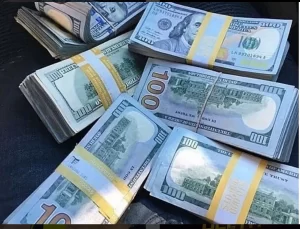Table of Contents
The Central Bank of Nigeria (CBN) announced a surge in foreign exchange (dollar) inflow into the economy in February 2024, citing increases in remittance payments from Nigerians abroad and the acquisition of naira assets by foreign portfolio investors.


According to a press release issued on Thursday night by Mrs. Hakama Ali, the acting director of corporate communications at the apex bank, she stated, “The Bank’s data reveals that overseas dollar remittances soared to US$1.3 billion in February 2024, marking a more than fourfold increase from the US$300 million received in January.”

Join our Telegram Channel for Updates
She added, “Foreign investors acquired over US$1 billion worth of Nigerian assets last month, contributing to a total portfolio inflow of at least US$2.3 billion recorded in 2024 so far, compared to the US$3.9 billion seen in total for the entire previous year.”
Mrs. Ali highlighted that higher foreign exchange inflows persisted into March 2024, propelled by heightened investor interest in short-term sovereign debt following recent adjustments to benchmark interest rates.
She emphasized that government securities issuances had been significantly oversubscribed, with foreign investors representing over 75 percent of the bids received during the auctions conducted on March 1 and 6, 2024.
CBN Governor, Mr. Olayemi Cardoso, outlined a strategy during last month’s Monetary Policy Committee meeting and a conference call with foreign portfolio investors to address inflation, stabilize the exchange rate, and instill confidence in the banking system and the economy.
He expressed optimism about sustained increases in Nigeria’s foreign currency reserves and improved liquidity in the foreign exchange market, stating, “All the different measures we have taken to boost reserves and create more liquidity in the markets have started to pay off. When people understand the real issues and see a strategy and a plan, things tend to calm down.
Our objective today is to ensure that the market has supply, that the market functions, and that investors can come in and go out.”









